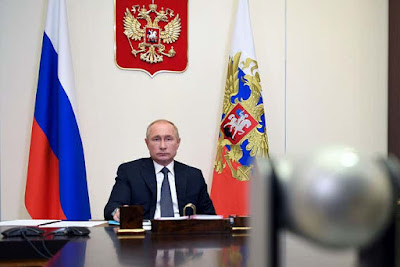Many countries have been working tirelessly to produce a vaccine or some kind of cure for the Covid19 pandemic and alas some good news is starting to surface as Russia just released a ground breaking vaccine despite just only two months of clinical trials.
President Vladimir Putin announced on Tuesday that Russia had become the first country to grant regulatory approval to a COVID-19 vaccine, which showed "stable immunity" against the new coronavirus and had "passed all the necessary checks".
Vladimir Putin, president of Russia, says that a coronavirus vaccine developed in his country has been registered for use, and one of his daughters has already been inoculated.
However, the vaccine, named "Sputnik V" in homage to the world's first satellite launched by the Soviet Union, has not yet completed its phase-three trial, which involves wide-scale testing with thousands of participants.
Across the globe, more than 200 vaccine candidates are being developed and trialled, with at least 24 in the human clinical trial phase, according to the World Health Organization (WHO).
Here is everything you need to know about Sputnik V, aka Russia's Covid19 vaccine.
 What is Sputnik V?
What is Sputnik V?
The "Sputnik V" is a vaccine developed by the Gamaleya research institute in coordination with the Russian defence ministry. It is based on a proven vaccine against adenovirus - the common cold.
The vaccine is expected to provide immunity from SARS-CoV-2, the virus that causes COVID-19, for up to two years, according to the Russian health ministry. But the results of the limited trials have yet to be made public.
The vaccine is administered in two doses and consists of two serotypes of human adenovirus, each carrying an S-antigen of the new coronavirus, which enter human cells and produce an immune response.
It is a so-called viral vector vaccine, meaning it employs another virus to carry the DNA encoding of the needed immune response into cells.
The platform used for the vaccine was developed by Russian scientists over 20 years and had formed the basis for several vaccines in the past, including those against Ebola.
Gamaleya's vaccine is based on similar technology to the coronavirus vaccine prototype developed by CanSino, a Chinese vaccine-making company.
Health Minister Mikhail Murashko has said clinical trials involving several thousand participants would follow.
The first batch of the vaccine will be made available for medical personnel in the next two weeks, he said on Wednesday.
The vaccine could be available for mass use in October, according to the country's health ministry.
What is the world's reaction?
While numerous experts and governments have raised concerns that Russia is racing to be the first with an approved vaccine and compromising safety, some countries have shown interest in Sputnik V.
The WHO said on Wednesday it was looking forward to reviewing the clinical trials.
Scientists in Russia and elsewhere have questioned the speed of the development and lack of transparency, saying offering the vaccine to the public before the important final-stage testing could pose serious problems.
"We have no idea that the claims that are being made about the safety and immune response of this virus are true or not," Peter Drobac, infectious disease medic at Oxford University, told Al Jazeera.
He said the "geopolitics - being able to claim victory - may put pressure on other countries to cut corners on safety and effectiveness as well. That could put all in danger".
Meanwhile, the Philippines plans to start trialling the vaccine in October, with President Rodrigo Duterte expected to be inoculated as early as May next year, the presidential spokesman said on Thursday.
Is a working vaccine on the way?
According to the World Health Organization, six vaccines are currently in phase III trials, but none has yet completed them. More than 100 vaccines are in development and many have showed positive results, raising hopes that one will be ready to be rolled out within the next 12 months.






0 Comments